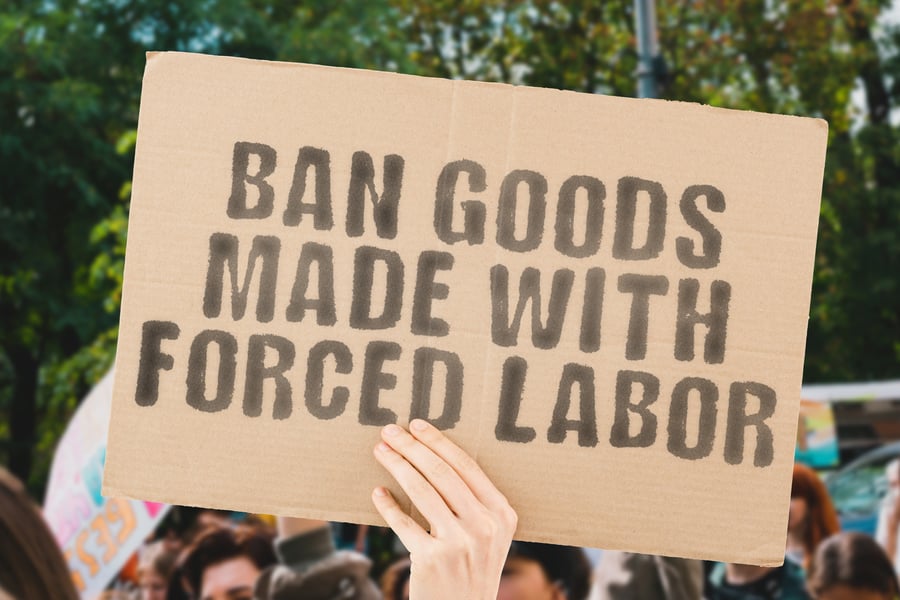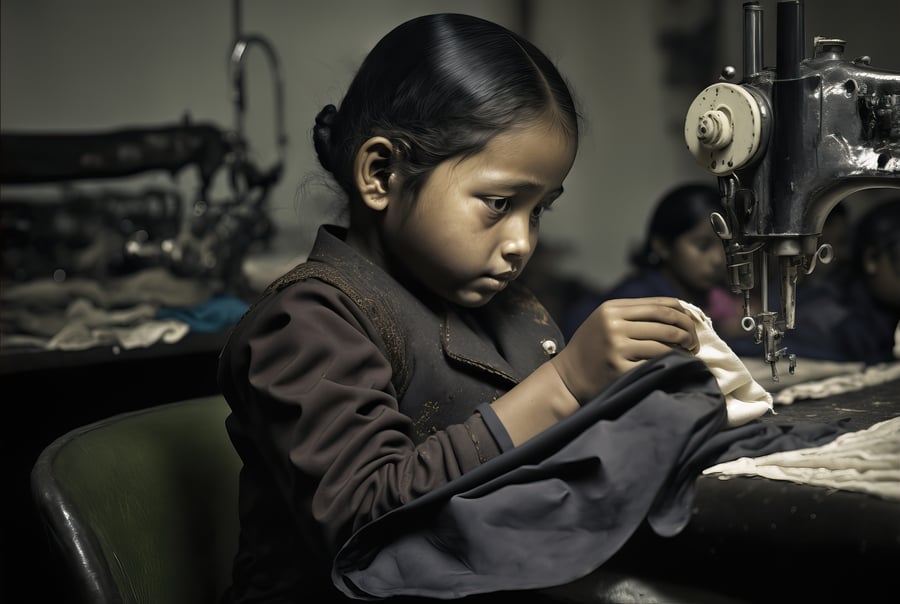With over 15 years of experience in finance, risk management and data analytics, Bill understands exactly what enterprise businesses should be thinking about as they build their corporate growth and risk strategies. Prior to joining Creditsafe in 2021, he spent six years at Dun & Bradstreet as Area Vice President of Finance Solutions and Third-Party Risk & Compliance.
Ever heard of the game ‘Would You Rather’? It’s a party game that offers players a dilemma between two options.
So, my question for you is this: Would you rather make an $800 million mistake or would you rather not?
We’ll assume you’d rather not. But that’s exactly what Snapchat did back in 2018 with their app that involved a choice between either punching Chris Brown or slapping Rihanna. It didn’t take long for the internet to be up in arms about the tone-deaf app that referenced the controversial domestic abuse charges between both singers in 2009.
Rihanna even took to social media to call out Snapchat, a move that caused the company’s stock to plummet by 4% and lose $800 million. The social media company was forced to make an apology in the face of its brand reputation being damaged.
This is just one cautionary tale in a long line of mistakes from companies that have been eviscerated by cancel culture. And these mistakes come in many forms. In 2016, cosmetics brand MAC announced the launch of a new collection called ‘Vibe Tribe.’ While the products and colors were beautiful, consumers weren’t happy about the ‘tribal’ packaging and the Native American style of the ad campaign – calling MAC out for cultural appropriation.
Sometimes it’s the actions of a senior executive or board member that can cancel a brand. That was the case when GoDaddy founder Bob Parsons videotaped himself shooting an African elephant and posing with its dead body. The public outcry was quick and intense. While the negative publicity and damage to the brand’s reputation were severe, the incident also had a negative impact on the company’s bottom line. The website hosting company lost 70,000 domains in a single week and founder Bob Parsons stepped down from the board in 2018.

How does cancel culture relate to international suppliers?
Cancel culture exists. You need to understand how your corporate actions and those of your international suppliers influence your brand confidence and customer loyalty.
Consumers don’t just buy from brands based on their needs and wants. Corporate Social Responsibility (CSR) has grown in the last decade. So, consumers increasingly expect brands to be socially responsible and ethical in their practices. For example, 25% of consumers cite a ‘zero tolerance’ policy towards companies that embrace unethical practices. Plus, research carried out by OpenText found that nearly nine in 10 (88%) global consumers would choose to buy from companies with ethical sourcing structures in place over ones that did not. The research also found that 83% of global consumers are willing to spend more on a product if they can be certain that it’s ethically sourced.
But it’s not just that consumers expect brands to act ethically and responsibly. If your brand fails to do so, consumers will call you out for it publicly on social media. Not prioritizing ethical sourcing and due diligence, both within your own business and with the international suppliers you work with, could have serious consequences. Not only could you lose the loyalty and repeat sales of customers, but your brand reputation could take a huge hit with negative publicity and plummeting stock prices.
To add fuel to the fire, you could also find your business on the receiving end of lawsuits, compliance violations and regulatory fines. In the U.S., for example, the Uyghur Forced Labor Prevention Act was passed unanimously by the U.S. Senate in December 2021. The act bans imports from China’s Xinjiang region unless companies can prove their goods were not produced using forced labor or child labor.
Meanwhile, U.S. senators introduced the Slave-Free Business Certification bill in 2022. The bill requires certain large companies to carry out audits on their supply chains to ensure they are free of slave labor. If the bill passes, eligible companies could be fined up to $1 million if forced labor is identified in their supply chains. Canada has a similar type of legislation awaiting adoption. The bill, known as S-211, would require that companies report on their efforts to stop goods made with forced labor from entering their supply chains. If you’ve been working with suppliers that employ forced labor, then you’re opening your business up to compliance violations and regulatory fines. On top of that, you could lose loyal customers, which would deplete your cash flow significantly.

The growing regulatory pressure has led to some brands taking ethical sourcing and supplier due diligence very seriously. Take Patagonia, for example. Touted as the world’s most responsible company, Patagonia monitors all its processes, including every step of the manufacturing process with the goal of minimizing its environmental and social impact. The clothing brand is also a certified B Corporation, having met or exceeded stringent criteria consistently and earning an ‘outstanding’ score in each of the last five years.
We expected the respondents in our new study, ‘The Murky Waters of Overseas Manufacturing,’ to show a similar commitment to ethical sourcing. But what we uncovered was a contradiction between the CSR beliefs and actions of North American companies. On the one hand, 83% of the respondents run compliance checks on international suppliers at least once a quarter. We suspect this is being driven by the growing consumer demand for ethical sourcing. But then nearly half (42%) of the respondents admitted they would still work with an international supplier that has been found to be on a sanctions list or involved in corruption, bribery, fraud or slave labor.
According to Matthew Debbage, CEO of the Americas and Asia for Creditsafe, this contradiction highlights a bigger problem in global supply chain management. “Many companies are simply running compliance checks to tick a box and show that they did the necessary due diligence. But they’re not using the results to protect the integrity of their global supply chains. It’s more of a tick-box exercise than anything else. And this needs to change if brands want to restore customer confidence and position themselves for long-term revenue growth. That’s the purpose of compliance checks – to give you the information you need to avoid working with unethical, corrupt suppliers and, ultimately, prevent your company from incurring financial and reputational damage as a result.
The key is not to just run a compliance check once and then be done. Just like with credit risk, brands should regularly monitor their global supply chain for compliance issues. That’s the purpose of compliance checks – to give you the information you need to avoid working with unethical, corrupt suppliers and, ultimately, prevent your company from incurring financial and reputational damage as a result.”
Problem 1: Loss of customer loyalty and recurring sales
One of the biggest surprises from our study is that nearly half (42%) of North American businesses would still work with international suppliers engaged in slave labor, fraud, money laundering or bribery. Yet, 28% of the respondents believe reputational damage is the worst consequence of working with unethical suppliers.
Unethical sourcing does more than destroy your customer confidence; it can cost you sales and revenue. Just look at what’s happened to Urban Outfitters. Over the years, the retailer has been repeatedly called out for unethical practices – ranging from allegations of cultural appropriation to being accused of not treating workers fairly.
As I said earlier, consumers aren’t very forgiving of brands that don’t take CSR seriously. The takeaway here is that what your suppliers do and how they treat their workers has a direct impact on your own company’s reputation. And if customers lose confidence in your brand because you work with suppliers who use forced or child labor, you could very well lose those customers and revenue.
Most businesses see ethical sourcing as an either/or scenario – meaning you can’t be profitable and socially responsible. One inevitably has to suffer.
But we don’t agree with that. According to a report by the World Economic Forum, it’s estimated that sustainable and ethical sourcing practices cut supply chain costs between 9% and 16%, while increasing revenues by up to 20% for responsible products and boosting brand value by 15% to 30%.
Patagonia is a prime example of how a purpose-driven, sustainable company can drive revenue growth and profitability. Touted as the world’s most responsible company, Patagonia monitors all its processes, including every step of the manufacturing process with the goal of minimizing its environmental and social impact. The clothing brand is also a certified B Corporation, having met or exceeded stringent criteria consistently and earning an ‘outstanding’ score in each of the last five years.
Best of all, Patagonia hasn’t had to sacrifice profits to be socially responsible. The brand has an estimated value of $3 billion. It sells more than $1 billion in outdoor clothing and gear and brings in $100 million in revenue a year.

Problem 2: Lawsuits and compliance violations
You don’t want to suffer the same fate as companies embroiled in lawsuits or accused of compliance violations. Take Nike, for example. The famous footwear brand has faced backlash and consumer boycotts for working with overseas suppliers that use forced labor. Canadian companies aren’t exempt either. In 2018, Kinross Gold was fined $950,000 because it failed to implement anti-corruption practices after buying African subsidiaries.
Being aware of compliance rules and guidelines is key. Here are some U.S. and Canadian legislation that manufacturing companies should be aware of:
- In the U.S., the Uyghur Forced Labor Prevention Act was passed unanimously by the U.S. Senate in December 2021. The act bans imports from China’s Xinjiang region unless companies can prove their goods were not produced using forced labor or child labor.
- U.S. senators introduced the Slave-Free Business Certification bill in 2022. The bill requires certain large companies to carry out audits on their supply chains to ensure they are free of slave labor. If the bill passes, eligible companies could be fined up to $1 million if forced labor is identified in their supply chains.
- Canada has a similar type of legislation awaiting adoption. The bill, known as S-211, would require that companies report on their efforts to stop goods made with forced labor from entering their supply chains.
If you’ve been working with suppliers that employ forced or child labor, then you’re opening your business up to compliance violations and regulatory fines. On top of that, you could lose loyal customers, which would deplete your cash flow significantly.

Problem 3: Negative publicity and plummeting stock
There are obviously many reasons you shouldn’t work with suppliers who employ forced or child labor, or those who are listed on a global sanctions list. In addition to losing customer loyalty and revenue, your reputation could be irreparably damaged.
This is what happened to popular clothing brand Gap when it came under fire for working with suppliers in India who use child labor. Amid the controversy, it was reported that children as young as 10 years old were sewing clothes for Gap. The brand was called out in the media for being a ‘kids’ sweatshop’ – with stories coming out in The New York Times, CNN, The Guardian and more.

There was a similar scandal and backlash when it was discovered that Packers Sanitation Services employed at least 102 children between the ages of 13 and 17 in jobs that had them using toxic chemicals to clean razor-sharp saws. According to a U.S. Department of Labor investigation, the company paid $1.5 million in civil penalties for employing minors in hazardous occupations and having them work overnight shifts at 13 meat processing facilities in eight states.
It's not just your reputation that takes the hit when you work with unethical suppliers. Your stock price could suffer too. Enron is a prime example of this. In 2001, it was revealed that Enron’s profitability was due to accounting fraud. In Enron’s case, the stockholders invested in Enron assuming their profitability had come from legal means. But when the truth was discovered, the company crumbled and its stock price dropped dramatically.
How to protect the integrity of your brand and your global supply chain
- Run international credit checks on your suppliers: Make sure your suppliers have sufficient cash flow and income to complete your production orders. You don’t want to hand over a large percentage of your orders only to find out a supplier falls short of cash and will shut down.
- Create a code of conduct for international suppliers. Make sure this code of conduct clearly outlines what your expectations are and what the consequences are for violating the code of conduct. It’s important that you don’t just post the code of conduct up on your office walls. And just sending a digital copy of it or mailing posters to your suppliers isn’t going to cut it either. You need to make sure all your suppliers fully understand the code of conduct and you need to carry out regular audits of your suppliers’ factories to make sure they’re adhering to it.
- Screen your international suppliers (and the directors in the company) against real-time sanctions databases, global enforcement lists, adverse media, state-owned enterprises and Politically Exposed Persons profiles: Don’t assume all suppliers have the same mindset and approach to corporate social responsibility (CSR) as you do. And don’t just take their word for it. Do your research and let the data tell you for certain. Remember, it’s not just about how responsible and ethical you are. What your suppliers do, how they treat their workers and what activities they engage in all have repercussions for your own business – from damaging your reputation to reducing customer trust and loyalty to negatively impacting sales and revenue growth.
- Identify backup suppliers that are available in case you need to replace your existing suppliers. This is a lesson many manufacturers learned the hard way during the pandemic. Nike and H&M, for example, have faced backlash and consumer boycotts recently for working with international suppliers who employ forced labor. #
- Build compliance workflows into your decision process with suppliers: If you work with multiple international suppliers, then you’ll want to automate the decision process. Vetting every single supplier will take a lot of time and could lead to things falling through the cracks. For example, you might miss that an international supplier has engaged in bribery or slave labor. Both are inexcusable practices. And even though your business isn’t the one engaged in those activities, your business can still suffer as a result. That’s why it’s important to build compliance rules and decision models to make the right decision quickly. Plus, you can standardize the criteria you use for every supplier. By using the same rules and criteria for every supplier, you’ll make your business more transparent and less likely to be accused of playing favorites with certain suppliers over others.
- Make sure you have a digital audit trail to prove compliance with federal and state laws: There are several federal and state laws that outline the requirements for supplier due diligence. For example, the United States-Mexico-Canada Agreement (USMCA) has provisions that require companies to take measures to prohibit the importation of goods produced by forced labor, including forced child labor, to address violence, sex-based discrimination and immigration protections in the workplace. And there are newly proposed legislative initiatives too. For instance, the Slave-Free Business Certification Act of 2022 was recently introduced in the U.S. Senate. The Act would require any publicly traded mining or manufacturing entity with annual worldwide gross receipts that exceed USD $500 million to conduct an audit of its supply chain to investigate the presence or use of forced labor by the company or its suppliers. Companies would be required to submit and publish a report containing the results of the audit and the company’s efforts to eradicate forced labor from the supply chain.
In an age of cancel culture, supplier due diligence really is the best way to protect your brand and build customer confidence. From gathering the right data to meeting compliance laws, you’ll be able to show you practice what you preach and hold your suppliers to those same standards too.

About the Author
Bill James